Back
How to Store an Electric Toothbrush HygienicallySep 3
Sep 3
How to store an electric toothbrush hygienically is a question often overlooked. Many users leave their toothbrush in a damp cup or next to the sink—conditions that allow bacteria and mold to thrive. This article explains dentist-recommended toothbrush storage practices, shows common mistakes to avoid, and highlights how BrushO’s design (waterproof body, replaceable heads, travel case) makes hygienic storage easier at home and on the go.
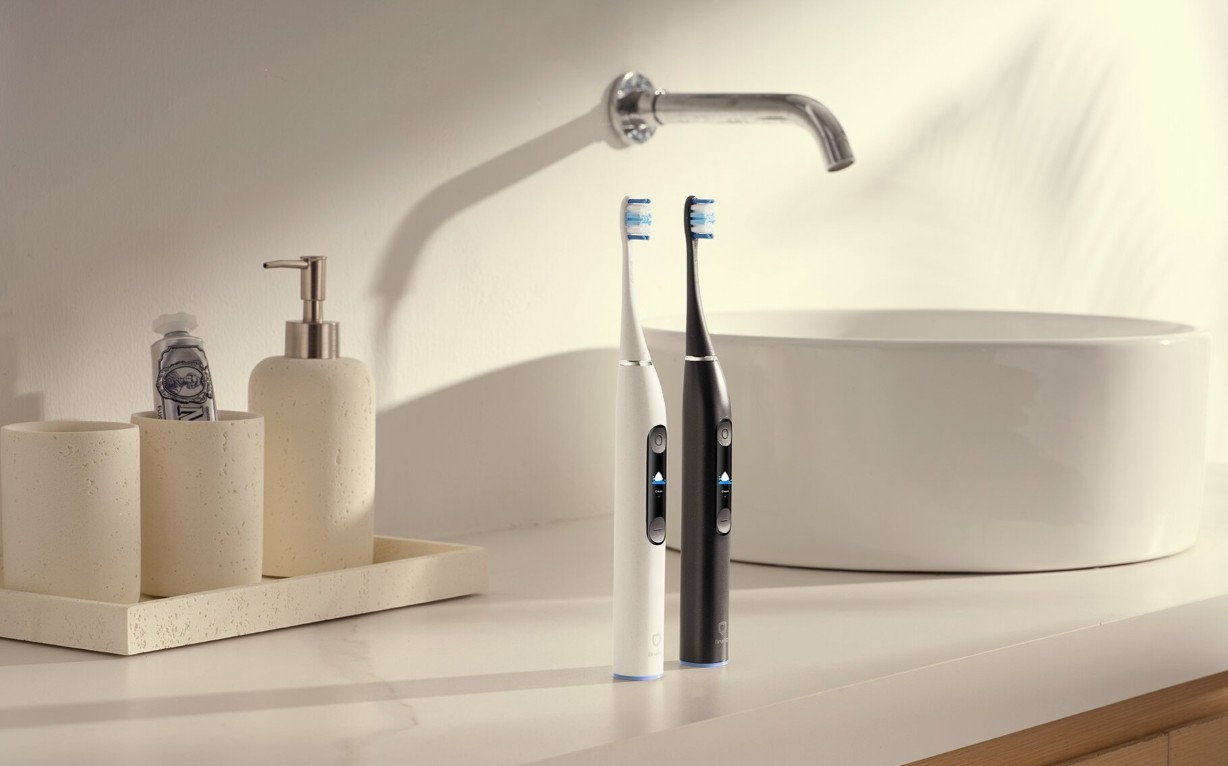
Why Hygienic Storage Matters 🦷
Your toothbrush comes into contact with millions of bacteria daily. Without proper storage, these germs can multiply and compromise your oral health. According to the American Dental Association (ADA), correct toothbrush storage prevents cross-contamination, prolongs brush head life, and reduces risks of gum disease or oral infections.
Common Mistakes to Avoid ❌
- Keeping the brush in a closed, damp case → creates a breeding ground for bacteria.
- Storing near the toilet → every flush can spray microscopic droplets up to 6 feet.
- Laying the brush flat on the sink → traps moisture and encourages mold.
- Never replacing brush heads → worn-out bristles collect more bacteria and clean less effectively.
Best Practices for Storing Your Electric Toothbrush
1. Upright & Ventilated 🌬️
Always store your toothbrush standing upright in a holder that allows airflow. This helps bristles dry quickly and reduces bacterial growth.
2. Separate from Others 🚫
If multiple toothbrushes are in the same holder, ensure bristles don’t touch. This prevents cross-contamination between family members.
3. Cover Smartly 🛡️
Use a breathable cover for travel, not airtight plastic that traps moisture. For home use, open-air drying is preferable.
4. Keep Away from Toilets 🚽
Place toothbrushes at least 6 feet away from toilets and sinks to avoid aerosol exposure.
5. Replace Brush Heads Regularly 🔄
Dentists recommend replacing brush heads every 3 months, or sooner if bristles fray.
Travel & Office Scenarios ✈️💼
- At the office: Store in a ventilated travel case and rinse thoroughly after each use.
- While traveling: Use BrushO’s protective travel case, and dry the brush before packing.
- Shared bathrooms: Keep each toothbrush in a separate holder with proper distance.
How BrushO Supports Hygienic Storage 💡
The BrushO Smart Electric Toothbrush is designed with hygiene in mind:
- IPX7 waterproof rating: Safe to rinse under water and easy to clean.
- Replaceable brush heads: Each kit includes three heads, making rotation simple.
- Travel-friendly storage case: Keeps brushes safe and ventilated while on the move.
- Smart reminders: App notifications help track when to replace brush heads.
FAQ: Toothbrush Storage
Q1: Should I keep my toothbrush in a drawer?
No, enclosed drawers trap moisture. Open-air storage is healthier.
Q2: Is UV sanitizing worth it?
UV sanitizers can help, but proper drying and replacement are usually enough.
Q3: How often should I disinfect my brush handle?
Wipe weekly with a damp cloth or alcohol pad, especially if multiple people share the bathroom.
Storing your electric toothbrush hygienically isn’t complicated, but it makes a huge difference for oral health. By keeping it upright, ventilated, and away from bacteria sources, you protect both your teeth and your brush. With features like waterproof design, replaceable heads, and a dedicated travel case, BrushO ensures your brushing routine stays clean and safe—wherever you are.
👉 Upgrade your brushing experience with BrushO: https://www.brusho.com
📱 Learn more: How to Charge an Electric Toothbrush Correctly
BrushO Sponsors SV Dental Career Seminar in Taipei
Sep 4
Morning vs Night Brushing: Best for Your Teeth
Sep 2
Recent Posts

How to Disinfect Your Toothbrush
Keep your mouth clean by making sure your toothbrush is, too.

Why BrushO Offers Free Brush Heads
BrushO doesn’t just promise free brush heads for life — it rewards you for doing what’s best for your health: brushing daily.
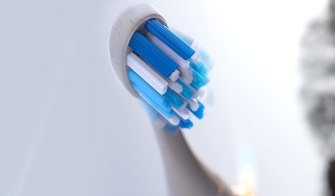
How to Reduce Dental Anxiety and Make Brushing Easier
Dental anxiety isn’t just about visiting the dentist—it can affect your daily oral hygiene, especially brushing. If brushing your teeth feels stressful, overwhelming, or even scary (especially for kids or those with sensory sensitivity), you’re not alone.
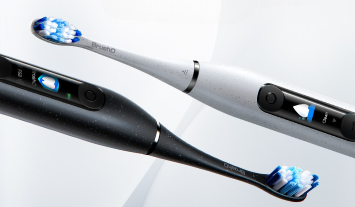
How to Master Smart Brushing with AI‑Powered Toothbrushes
Smart toothbrushes are transforming the way we care for our teeth.

How to Maximize Your Toothbrush Battery Life
Wondering why your electric toothbrush battery drains so quickly? Or how to make sure your AI-powered brush like BrushO performs at its best for years?
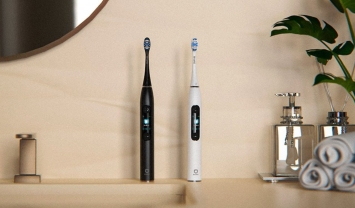
Are You Overpaying for a Toothbrush?
If your toothbrush costs a small fortune but doesn’t make your teeth feel cleaner, you might be paying more than you should. Here’s how to tell if you’re getting true value — and how to choose smarter.
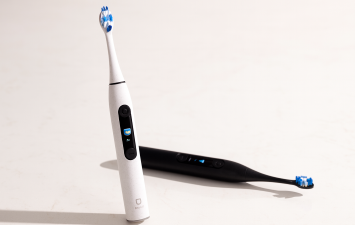
How to Switch from Manual to Electric Brush
Thinking of switching from a manual to an electric toothbrush?
Does Brushing Longer Mean Cleaner Teeth?
Many people believe that brushing longer automatically means a cleaner mouth—but is that true?
How to Brush Smarter, Not Harder
Brushing your teeth harder doesn’t mean brushing them better. In fact, it might be harming your gums and enamel.
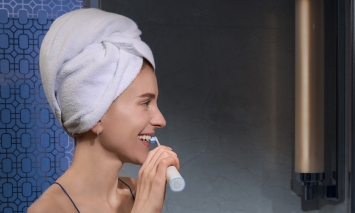
How to Make Your Diet Protect Your Teeth
Maintaining a bright, healthy smile isn’t just about brushing and flossing — your diet plays a huge role in oral health. The foods and drinks you consume every day can either help protect your teeth or contribute to decay and gum disease.
